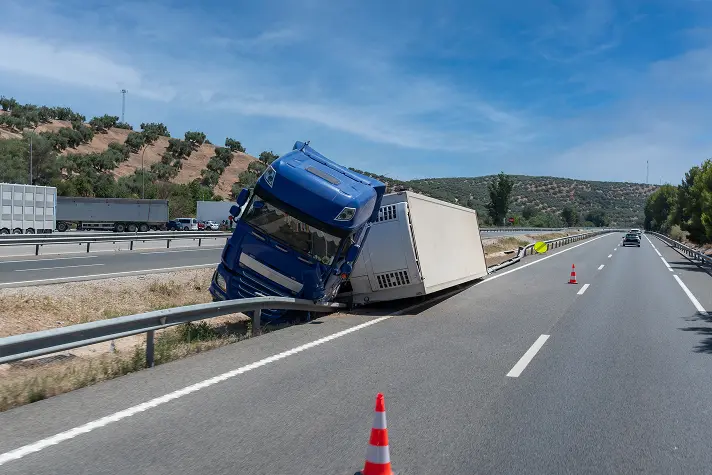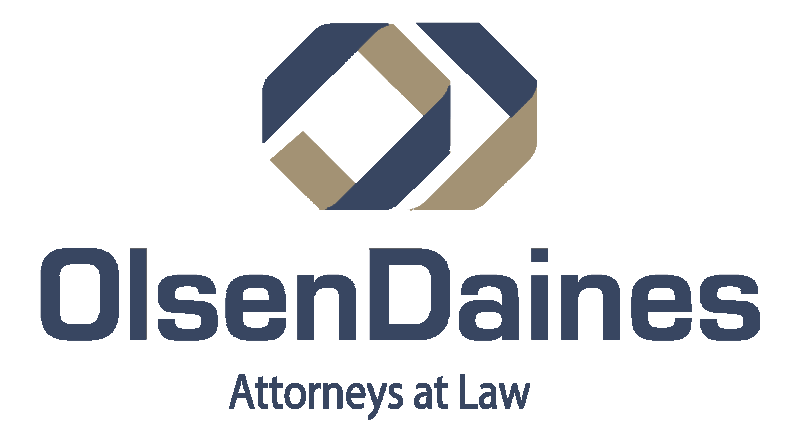What Makes a Truck Accident Different?
 If you’re a truck driver, you’re used to driving on long, lonely roads, but if you’ve been in an accident, the road ahead is even longer than what you’re used to. The road to a resolution in a truck accident case can take a long time, and there are often unexpected turns. If you’ve been in a car accident before, you may be wondering how it’s different. The truth is it’s really quite a bit different.
If you’re a truck driver, you’re used to driving on long, lonely roads, but if you’ve been in an accident, the road ahead is even longer than what you’re used to. The road to a resolution in a truck accident case can take a long time, and there are often unexpected turns. If you’ve been in a car accident before, you may be wondering how it’s different. The truth is it’s really quite a bit different.
So, what makes a truck accident different? To put it simply, complexity. Truck accident cases are generally much more complicated than car accident cases, pretty much in every imaginable way. That’s why you shouldn’t necessarily hire an experienced auto accident attorney to handle your truck accident case. They should have experience specific to truck cases.
With that in mind, let’s talk about what makes truck accidents different than car accidents in a legal sense.
Five Biggest Differences Between Car Accidents and Truck Accidents
1. Severity
A fully strapped truck is approximately twenty to fifty times bigger and heavier than most other vehicles on the road. Unfortunately, that means that severe injuries or death are more likely to result from a collision involving one.
After an accident may be a very challenging time in your life, and you yourself may be recovering from injuries. It’s more important than ever to work with a truck injury attorney who has experience representing people and litigating cases like this.
2. Liability
Determining liability in a car accident can be challenging sometimes. But it’s much simpler than determining liability in a truck accident because, in a car accident, liability is often limited to the parties involved in the accident. With a truck accident, a full investigation must be conducted and liability may be distributed among a number of parties, including:
- The drivers involved: Violations like speeding, distracted driving, driving under the influence, hours of service violations, or other negligent behavior are considered when determining liability.
- The trucking company: The employer may be found liable for an employee’s actions, especially if there was negligent hiring, training, or supervision.
- The owner of the truck: If different from the trucking company, they may be liable for mechanical failures or inadequate maintenance.
- Cargo loading companies: If cargo was improperly secured, overloaded, or hazardously loaded and contributed to the accident, loading companies can be held liable.
- Maintenance and repair companies: For faulty repairs or inadequate maintenance that leads to mechanical failure.
- Truck and parts manufacturers: For defective vehicles, parts, or components that cause or contribute to the accident.
- Government entities: For dangerous road conditions, inadequate signage, poor road design, or failure to maintain roadways.
3. Investigations
As mentioned above, there are many possibilities as to where liability will be assigned, and as a result, investigations are often huge in scope. They may include wide-ranging issues, including:
- The truck driver’s condition: Examining hours of service violations, toxicology results, logbooks, and electronic device usage to determine if driver error or fatigue contributed to the crash.
- Vehicle inspection: A comprehensive mechanical review of brakes, tires, steering systems, and downloading the truck’s “black box” data to understand vehicle performance before the collision.
- Cargo investigation: Analyzing loading procedures, weight distribution, and cargo securement to determine if improper loading caused the truck to become unstable or difficult to control.
- Scene documentation: Detailed mapping of skid marks, debris patterns, and road conditions to reconstruct exactly how the event occurred.
- Electronic evidence: Analyzing data from GPS systems, fleet management software, onboard cameras, and electronic logging devices that provide an accurate record of the truck’s operation.
- Regulatory compliance: Reviewing the trucking company’s safety ratings, previous violations, driver training records, and adherence to federal regulations.
- Corporate responsibility: Examining the trucking company’s hiring practices, maintenance schedules, and safety policies.
- Third-party factors: Investigating other drivers involved, weather conditions, road design defects, and maintenance issues.
Schedule a Free Appointment!
Our appointments are free until you file and your concerns are addressed!4. Insurance
Insurance companies create a maze of complications that make trucking accidents far more challenging than car crashes. A single truck accident can trigger a half dozen insurance policies, and while insurance companies spend months arguing over which policy pays what, victims wait for compensation. This isn’t accidental. Trucking companies deliberately structure coverage this way to make claims more complex and expensive to pursue.
- Rush to settle: Insurance companies have been known to exploit immediate financial stress with offers that seem substantial but fall short of long-term needs.
- Control the narrative: Insurance teams have extensive resources and often have access to information before anyone else. They conduct interviews, take statements, and build their defense before victims can even obtain representation.
- Delay and exhaust: Insurers exploit trucking regulation complexity, demanding excessive documentation and forcing expensive litigation over routine expenses. Their goal is to exhaust victims’ resources and patience.
5. Timeline
Trucking accident cases exist at two extremes: everything happens at lightning speed in the first 72 hours, then the legal process can stretch for years. This unique timeline demands an attorney who understands the urgency of immediate action and has the stamina for a marathon legal battle.
At the beginning, everything moves quickly. Critical evidence disappears fast. Electronic logging devices overwrite data after eight days. Trucking companies dispatch teams immediately to secure records. Security footage gets deleted within 30-90 days. An experienced attorney acts within hours—not days—to preserve evidence through legal holds and emergency court orders.
But it can drag on for years. Unlike car accidents, where there are typically two parties involved, with truck accidents, there can be five or ten. Each party has its own legal team. Coordinating discovery, depositions, and expert testimony across multiple parties routinely extends cases three to five years beyond typical auto accident timelines.
With potential verdicts in the millions, trucking companies and their insurers spare no expense defending these cases. They hire top-tier law firms, multiple expert witnesses, and accident reconstruction specialists. Insurance companies would rather spend $500,000 on defense than pay a $5 million settlement. This means every aspect of your case will be aggressively contested.
Experienced Truck Accident Law Firm in Oregon & Washington
If you’ve been through an auto accident case, and now you’ve been in a truck accident, you should know: truck accidents are nothing like car accidents from a legal perspective. They’re entirely different, and the differences start right away and can drag on for years. That’s why it’s important to trust a truck accident attorney who’s experienced in cases like yours.
At OlsenDaines, we provide representation in Multnomah County OR and the surrounding area for people who have been involved in trucking accidents. We know this road well because we’ve been down it before, and we can help you avoid the many wrong turns that make it less likely that you receive what you’re owed.
Do you have questions about what comes next? We’re here to answer. For a free consultation on your case, give us a call today.
Back to Truck Accident Attorney